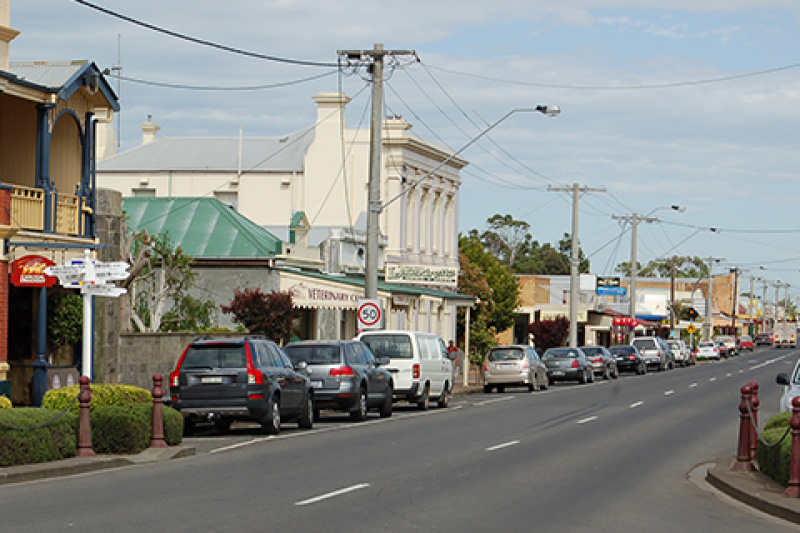Menu

The Gas Substitution Roadmap (GSR) is guiding our state towards achieving net-zero emissions while offering more choices and lower energy bills.
The Department of Transport and Planning is collaborating with the Department of Energy, Environment, and Climate Action to put this roadmap into action.
This roadmap is one part of a broader strategy aimed at supporting Victoria’s transition to clean energy as it lays out changes to planning and building regulations, including raising standards for new homes and commercial buildings by 2025.
Phasing out new residential gas connections
Starting January 1, 2024, new gas connections for new dwellings, apartment buildings, and residential subdivisions requiring planning permits are being phased out.
This policy has been implemented through amendment VC250 to the Victoria Planning Provisions and all planning schemes in Victoria.
Victoria builds over 50,000 new homes each year, with approximately 40,000 connecting to the gas network.
Prohibiting new gas connections is crucial to prevent the growth of fossil gas use and emissions, as well as expensive gas infrastructure.
The Victorian Government is taking bold steps to speed up the transition to renewable energy and has set ambitious emissions reduction targets. By 2035, the goal is to achieve a 75-80% reduction in emissions. In 2022-23, renewable sources accounted for 38% of Victoria’s electricity generation, highlighting the state’s commitment to a cleaner energy future. All-electric homes cost less to run and are more friendly.
Amendment VC250
Amendment VC250 was gazetted on 1 January 2024 and introduces new requirements for the construction of new dwellings, apartments and residential subdivisions that require a planning permit through a new particular provision at clause 53.03.
Clause 53.03 prevents a permit being granted to connect to reticulated natural gas when constructing a new dwelling, apartment development or subdividing land for residential purposes.
The clause also requires a mandatory condition to be applied to a planning permit to construct a new dwelling, apartment development or subdivide land for residential purposes to ensure no gas connections can be constructed after the development is completed.
The requirements only apply to the use of reticulated natural gas and do not apply to the use of bottled or reticulated Liquified Petroleum Gas (LPG). New and existing dwellings will still be able to connect to these gas sources.
More information on Amendment VC250.
What developments will the gas connection prohibition apply to?
The gas connection prohibition only applies to a new planning permit application lodged on or after 1 January 2024 that is for the construction of a new dwelling, new apartment development or a new residential subdivision.
Clause 53.03 defines what a new dwelling and new apartment development are for the purposes of this clause.
New dwelling means:
A new building, buildings, or part of a building, constructed to be used as a dwelling (other than a caretaker’s house) not including the alteration or extension of an existing dwelling.
A new building, buildings, or part of a building, connected to an existing dwelling and constructed to be used as a separate dwelling (other than a caretaker’s house), provided the use does not incorporate any part of what was the gross floor area (excluding external or party walls) of the existing dwelling.
A new outbuilding or swimming pool associated with an existing or proposed dwelling, provided it is not within the gross floor area (excluding external or party walls) of an existing dwelling. It does not include a new apartment development.
New apartment development means:
A new building, buildings, or part of a building, constructed to contain one or more apartments, whether or not any other use is provided for, but does not include the extension or alteration of, or the addition of new apartments to, an existing apartment development.
What developments will the gas connection prohibition not apply to?
The gas connection prohibition does not apply to the following applications:
- Any planning permit application lodged before 1 January 2024.
- A section 72 amendment to a permit if the original permit application was lodged before 1 January 2024.
The gas connection prohibition does not apply to the following types of development:
- The construction of a new dwelling, outbuilding (such as a garage) or a swimming pool that does not require a planning permit.
- The extension or alteration of an existing dwelling or apartment, including the addition of new apartments to the development.
- The conversion of an existing outbuilding associated with a dwelling (such as a garage) into a new dwelling.
- The construction of a second dwelling on a lot if it is partially or fully located within the gross floor area of the existing dwelling.
- The laying of gas infrastructure through easements on lots that contain existing dwellings or are to be used for a new dwelling.
If you are unsure whether your proposed development is affected, please contact your local council.
Gas connections in new residential subdivisions
The gas connection prohibition applies to lots within new residential subdivision permit applications lodged on or after 1 January 2024.
Affected lots will contain a mandatory condition that will prohibit a new dwelling connecting to reticulated natural gas on that lot. This will apply whether the construction of that dwelling requires a planning permit or not. Development for any other land use on those lots will be permitted to connect to gas.
The mandatory condition does not affect lots that contain an existing dwelling or apartment. It also does not affect a lot where a permit has been granted for a dwelling or apartment on the land in the lot.
For staged subdivisions, if the original permit application is lodged before 1 January 2024, all stages within that subdivision are exempt from the gas connection prohibition, even if future stages are endorsed after this date.
The approval of a Precinct Structure Plan is not a planning permission for subdivision of land into individual lots. The gas connection ban will apply to planning permit applications for the subdivision of land lodged on or after 1 January 2024.
Small second dwellings
On 14 December 2023, Amendment VC253 introduced a new land use term, and siting, design and amenity requirements for a small second dwelling into the Victoria Planning Provisions (VPP) and all planning schemes. A small second home must not be connected to reticulated natural gas, regardless of whether it requires a planning permit or not.
Support and incentives for electrification
Solar Victoria is launching the residential electrification grants program, offering grants to providers involved in large-scale residential electrification projects across Victoria. These grants will benefit homeowners.
Solar Victoria also provides individual rebates for solar PV for new homes under construction. Additionally, they offer training programs to support electricians in designing and installing PV and batteries in new homes.
Consumer guidance
Solar Victoria is expanding its solar hub to educate consumers about whole-home electrification, addressing the interest of solar homeowners in electrifying heating and water heating.
Builders and industry trends
The building industry in Victoria is already shifting towards electrification. Prominent property developers and builders are embracing all-electric options.
Benefits of induction cooking
Modern induction cooking is efficient, convenient, and safe. It’s a healthier choice compared to traditional gas stovetops, as recent studies have shown potential health risks associated with gas cooking.
BBQ and LPG usage unaffected
This change does not impact the use of LPG (bottled gas) for outdoor barbecues or in regional homes for hot water or cooking.
Support for gas appliance manufacturers
The Victorian Government will work closely with gas appliance manufacturers to manage impacts and support the industry during this transition.
New Government buildings
The Victorian Government will construct all new government buildings, including schools and hospitals, as all-electric, reducing emissions and reliance on gas while benefiting from all-electric technology.
More information
More information is on the Energy website found at the Victoria gas substitute roadmap page.

